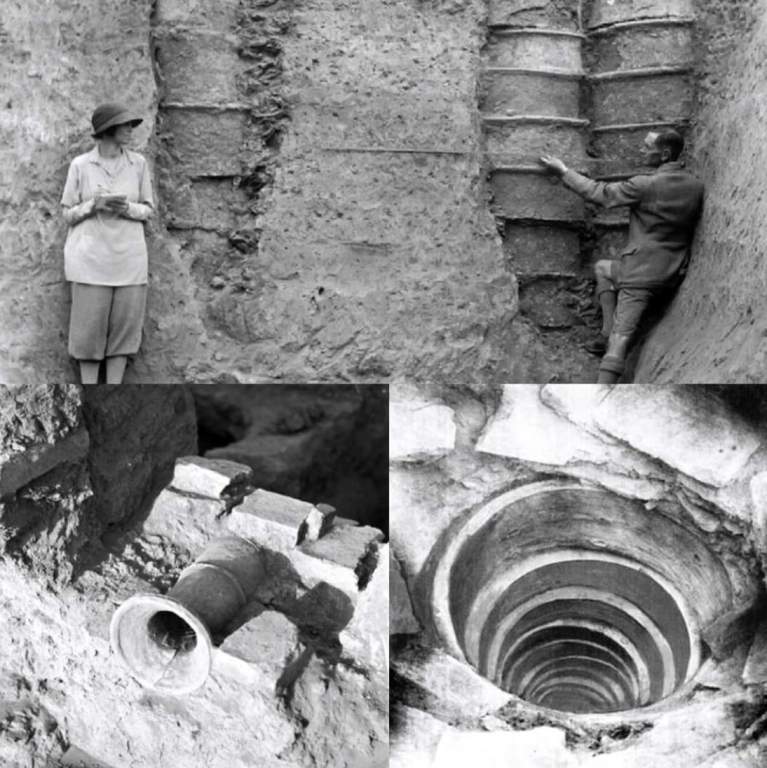The ancient drains of Mesopotamia were more than just regular wastewater channels. They were an intricate urban infrastructure network that showcased the Sumerians’ remarkable architectural and engineering prowess. The meticulous construction and maintenance of these drains provided evidence of the high level of civilization that the ancient Ur society had reached.
British archaeologist Leonard Woolley oversaw several excavations in Ur in the 1920s; Ur was a significant city in Mesopotamian history. As Woolley and his team painstakingly excavated the remnants of this ancient civilization, they discovered the astonishing discovery that beneath the city’s streets was a network of remarkably well preserved 4,000-year-old sewers.
Leonard Woolley provided important insights into Sumerian everyday life and urban design through his thorough documentation and analysis of these drains. The existence of such a sophisticated drainage system demonstrated the Sumerians’ proficiency with water management practices and their awareness of public health and cleanliness.
Read More: The Golden Chains of Laburnum
